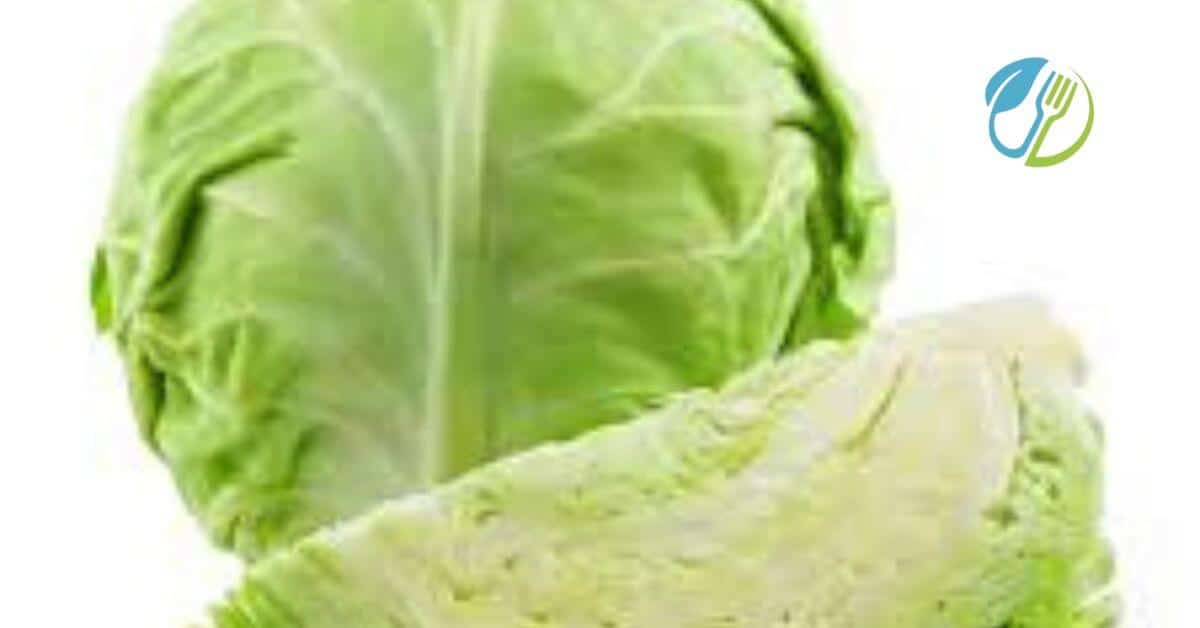Potassium is an essential mineral that occurs naturally in many foods. But “Is cabbage rich in potassium?” Oh, yes! Red cabbage is a rich source of potassium.
Red cabbage can provide a significant amount of potassium; 2 cups (178 g) supply 9% of the daily value of potassium.
Potassium-rich foods help support and regulate your heartbeat, maintain muscle and nerve health, and regulate body PH levels.
Everyone requires some potassium in their diet, but those with kidney disease may need to restrict their intake because their kidneys might have difficulty excreting excess potassium.
People with impaired kidneys need to be aware of foods’ potassium content and ensure they stay within the daily allowance their physician recommends.
Does cabbage have high potassium?
Potassium is an essential nutrient that supports the health of your heart and the proper functioning of your muscles.
Eating cabbage may not put you at risk of having a high potassium concentration in your body because it is generally regarded as a low-potassium vegetable.
According to the USDA, one cup (89 g) of chopped raw cabbage contains 151 mg of potassium or 3% of the daily value of potassium.
Although cabbage may not contain a significant amount of potassium, it may help enrich your potassium intake when eaten with a potassium-rich diet
How much potassium does cabbage have?
The amount of potassium in cabbage might differ depending on the type and preparation method.
For example, 100 g of raw green cabbage contains 170 mg of potassium, compared to 243 mg in 100 g of raw red cabbage, which makes red cabbage a healthier food for the heart’s health.
Does cabbage raise potassium levels?
The cabbage you eat will not affect the potassium level in your body if your kidneys are in good health.
Maintaining a healthy potassium level in your body is the responsibility of your kidneys. If they aren’t working correctly, they can cause high or low potassium levels in your body.
An elevated potassium level in the blood can result in cardiac arrest, in which the heart stops beating suddenly.
Too little potassium in the blood can result in an erratic pulse, and you might also experience weak muscles.
Can you get too much potassium from eating Cruciferous vegetables?
Cruciferous vegetables are a set of green foods rich in a variety of vital nutrients.
When eaten regularly, these vegetables are associated with a lower incidence of numerous chronic diseases, such as cancer and heart disease.
Cruciferous vegetables are an excellent complement to weight-loss and heart-healthy diets because they are low in calories, high in fiber, and help you feel satisfied for longer.
There are thousands of distinct species of cruciferous vegetables, with the most commonly consumed being:
- Cabbage
- Brussels sprouts
- Broccoli
- Cauliflower
- Kale
- Spinach
When you think of potassium-rich foods, bananas quickly come to mind, right? You will be amazed that bananas do not come near some of these vegetables regarding their potassium content. For examples,
- One cup of cooked Brussels sprouts delivers 500 mg of potassium
- One cup of cooked broccoli delivers 460 mg of potassium. Whereas,
- One medium-sized banana delivers 420mg of potassium.
However, eating cruciferous vegetables regularly and moderately might improve your health rather than produce too much potassium because adults need about 4,700 mg to meet their daily needs.
Is cooked cabbage high in potassium?
Potassium is one of the vital macronutrients the body needs to function well. It helps support nerve and muscle function.
According to the USDA, consuming half a cup of shredded cooked cabbage (75 grams) will deliver you 147 milligrams of potassium, which is 3% of the daily value of potassium.
Therefore, eating cooked cabbage may be a good way to add potassium to your diet.
How much potassium in green cabbage?
Cabbage is not a vegetable with a high potassium content. The amount of potassium in cabbage may vary depending on the color of the cabbage.
The exact weight of chopped green and red cabbage provides different amounts of potassium.
As per the US Department of Agriculture, 1 cup of chopped, raw green cabbage (89 grams) delivers 151 milligrams of potassium, which is 3% of the daily value of potassium.
In comparison, red cabbage tends to contain more potassium than green cabbage.
Data from the USDA shows that 1 cup of chopped, raw red cabbage (89 grams) contains 216 milligrams of potassium, about 5% of the daily value of potassium.
Therefore, the values above showed that the amount of potassium in raw green cabbage is less than that in raw red cabbage.
Conclusion
Cabbage is not a good source of potassium. However, the red form of cabbage tends to be richer in potassium than its green counterpart.
Potassium is essential to the human diet, providing health support for some vital organs.
Eating cabbage will not increase the potassium level in the body if your kidneys are at their optimal performance.
Always follow your doctor’s advice if you have an underlining kidney issue when consuming potassium-rich foods.
